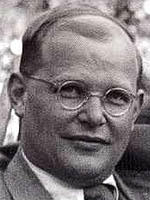Tribute to My Grandmother
Tribute to Della Marie Ades Holcomb
October 1, 2005
Going from childhood to adolescence in the 1960’s brought with it it’s own psychological baggage, but mine was made easier because of two grandmothers who believed in creating safe space. While most of the men of Holcomb descent had a propensity for cinder blocks and sawdust, I usually felt much more at ease near my grandmother whether it was swinging next to her while she snapped green beans or hiding out in the kitchen corner, a book in one hand, so that I could be near those incredible smells than always emanated from the oven. There were some culinary habits, though, that I found rather strange, whether it was the runny eggs she always made for grandpa or burning the toast just right for her own Germanic mother who had a propensity for then scraping off the burnt filings.
But the miracle for me was that, while the culture wars swirled around us and our leaders were being martyred, being at grandma’s always meant retreating to a safe place. One of the best places was in their cabin at the campgrounds in Gentry where she did her best to wipe away the dust and dirt that insisted on making its way past the screen door and into her home-away-from-home. I would do my best to stay out of her way while she scrubbed away the perpetual swirling of dust which always returned just the day after she had labored so long and hard to remove it. One time I made the mistake of getting too close to the cabin with my friends when performing typical childish hijincks. My Uncle Dean had shown me how you could put the better part of a package of peanuts in a bottle of Nehi and when you shook it up and down a few times it was sure to impress any girl. The problem was that I didn’t have the athletic ability of Dean when it came to controlling the arc of grape soda that shot out of the bottle and it splattered well past Judith Freeland to hit grandma square in the chest just as she was opening the screen door to rid herself of that day’s collection of dust and dirt. I remember looking at Raymond for a cue as to whether to laugh or not, only to hear my grandmother’s sharp intake of breath and demonstrative tut-tut of, “You, boys!”
So, today I want to thank my grandmother for putting up with her eldest grandson under her feet and for not paddling me when I probably deserved it; for inviting me into her safe spaces and always making me feel at home. May God give us more like her.




